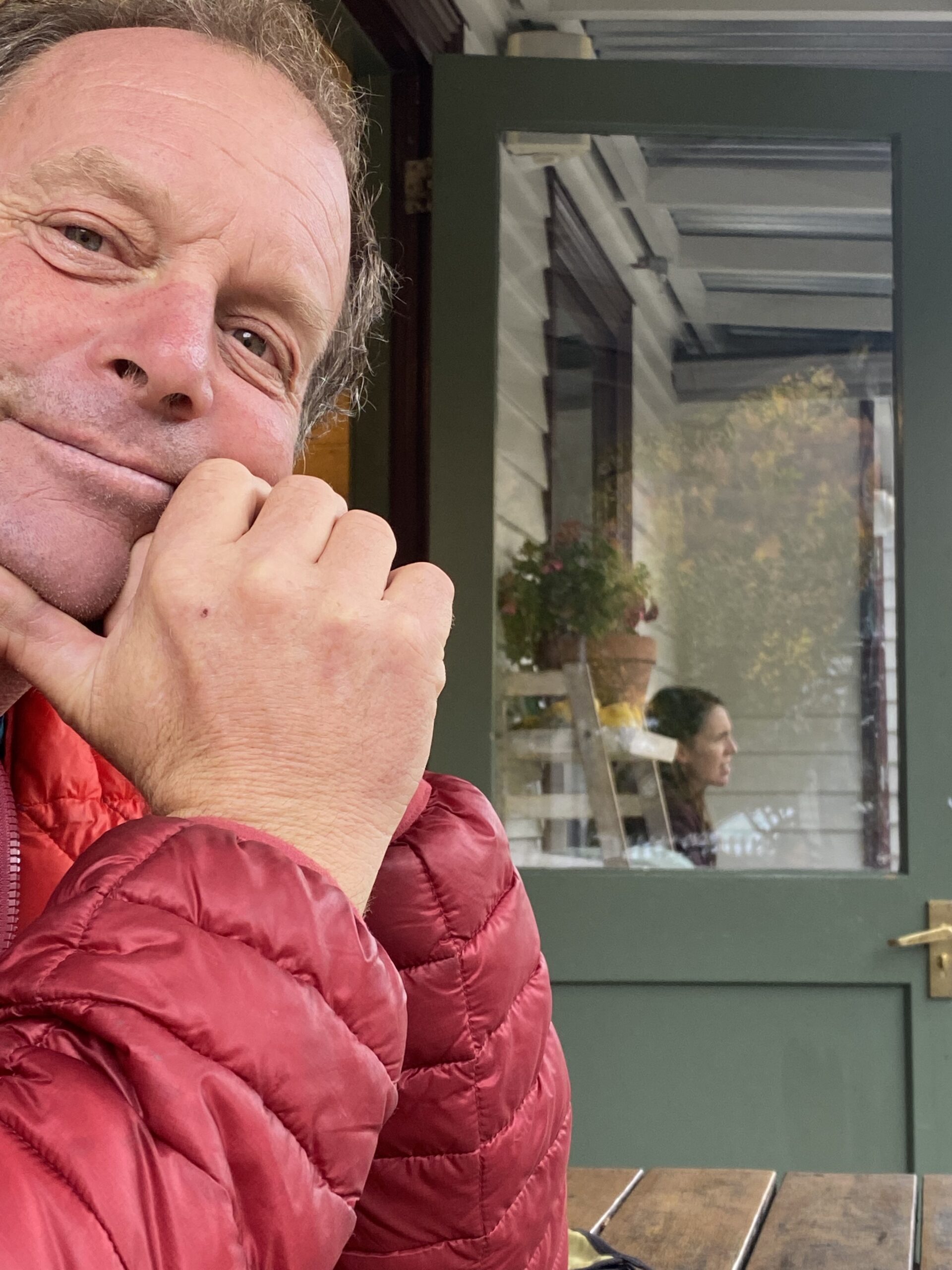Spring is sprung in Gibbston, noting we have no stock other than chickens and rabbits – the wire cages around the grasses are to save them from the rabbits!
Yesterday (September 22) was another happy day in New Zealand, as the majority of the country returned to Alert Level 1 conditions, with Auckland to drop back from Level 2.5 to Level 2 at midnight tonight. As usual, some health professionals think the reduction in Alert Levels has come too soon, while some business people think it has come too late. Such visible differences of opinion and resultant tensions are inevitable, and necessary, so that our country can balance out the competing ideas and needs. A country where everyone expresses the same opinion is not likely to be one that is comfortable to live in.
While New Zealand has crept back down from a high of 14 new cases of community-transmitted COVID-19 on 13 August, to 0 new cases on six of the last eight days, the numbers of cases have climbed markedly in Europe and the United Kingdom (note the figures below are corrected for population size) where case loads are in the thousands per day. The United Kingdom is, once again, sending out confused messages about what people should do in order to avoid a hard lockdown. It is a little tricky to imagine how closing hospitality facilities at 10pm will make a big difference, but hopefully the restriction of gatherings to a maximum of 6 people and a requirement for wearing masks in shops and on public transport will help. In Spain, parts of Madrid have been locked down, but the Spanish prime minister is stating the country won’t have a nationwide lockdown similar to their first one. Local restrictions are being put in place in France, with the French prime minister saying that the people need to succeed in ‘living with this virus’. It is very interesting to see this shift in approach – are the politicians reading the people’s willingness to lock down and reacting to that? I can’t imagine that China will be anywhere near as low key for another outbreak, they certainly weren’t in their second wave of infections. Cultural differences have major effects on all sorts of things, including political responses.


While the numbers of cases are rising in Europe, the numbers of deaths are not rising anywhere near as fast as they did in the first national experiences of the COVID-19 pandemic. This is attributed variously to health professionals having more experience in managing COVID-19 patients, two drugs being available for severely affected people, a younger demographic being infected and more widespread testing including people in the statistics who might not have been tested and counted in the first wave of infection. However, if lots of younger people are infected, this could lead to a new wave of infections in more vulnerable communities in due course. There is also a lag effect, in that it takes three to four weeks for people who are infected to get admitted to hospital and then to die.
Looking at the European figures makes me interested again in the Swedish experiment. Sweden’s infection rates per million people have recently dropped, rather than risen. For a lot of people, evaluation of Sweden’s measures invokes a moral response. Is Sweden ‘right’ or ‘wrong’ in their approach? There doesn’t seem to be a possibility for an in-between answer. Maybe Sweden is partially right? They messed up with their care homes but their overall approach of general distancing is good? Of course, Sweden’s approach is informed and assisted by their culture, which is reasonably distanced, measured and compliant. To suggest any country should follow another country’s actions in regard to COVID-19 (or any other issue, for that matter), is clearly nonsensical because history and culture strongly influence what is possible for a community of people. One can learn from others, but one cannot copy them wholesale.
As Sweden and others continue point out, there is also still a long way to go in this pandemic. We will, most likely, declare ‘winners’ and ‘losers’ at various times into the future. This will be true – at different points in time, different places will be better or worse off. The end result is not the only result that counts, because we all have to live through these times. In addition, each country will mix economic indicators with social indicators and come up with confused parameters that will likely be intended to demonstrate how they are winners. However, if they are definitely not winners, countries can always follow the lead of the US President and simply state that they are winners, happily oblivious to any data.
I realised today that exactly six months ago today we went into a short lived Alert Level 3, to be followed by Alert Level 4 at midnight on March 26th. Who would have foreseen that in January? Or foreseen where we would be today – eliminating the virus but effectively locked in our country, creating money via government roundabouts to fund bailouts individuals and companies alike. It’s a brave person, or a water diviner, who might say what the next 6 months will bring and who will be winners or losers when next March rolls around.

Discover more from Jane Shearer
Subscribe to get the latest posts sent to your email.




One thought on “Taking stock”
Do you wear shoes? Love it.
Our (my?) lack of knowlege as to how “Covid-19 deaths” are actually defined and recorded in each country and the many other country differences you’ve highlighted confirm my concerns that nobody will ever be able to conclusively determine the optimum response (health/economy/other) to this pandemic. I have friends at both ends of the spectrum and everywhere in between.